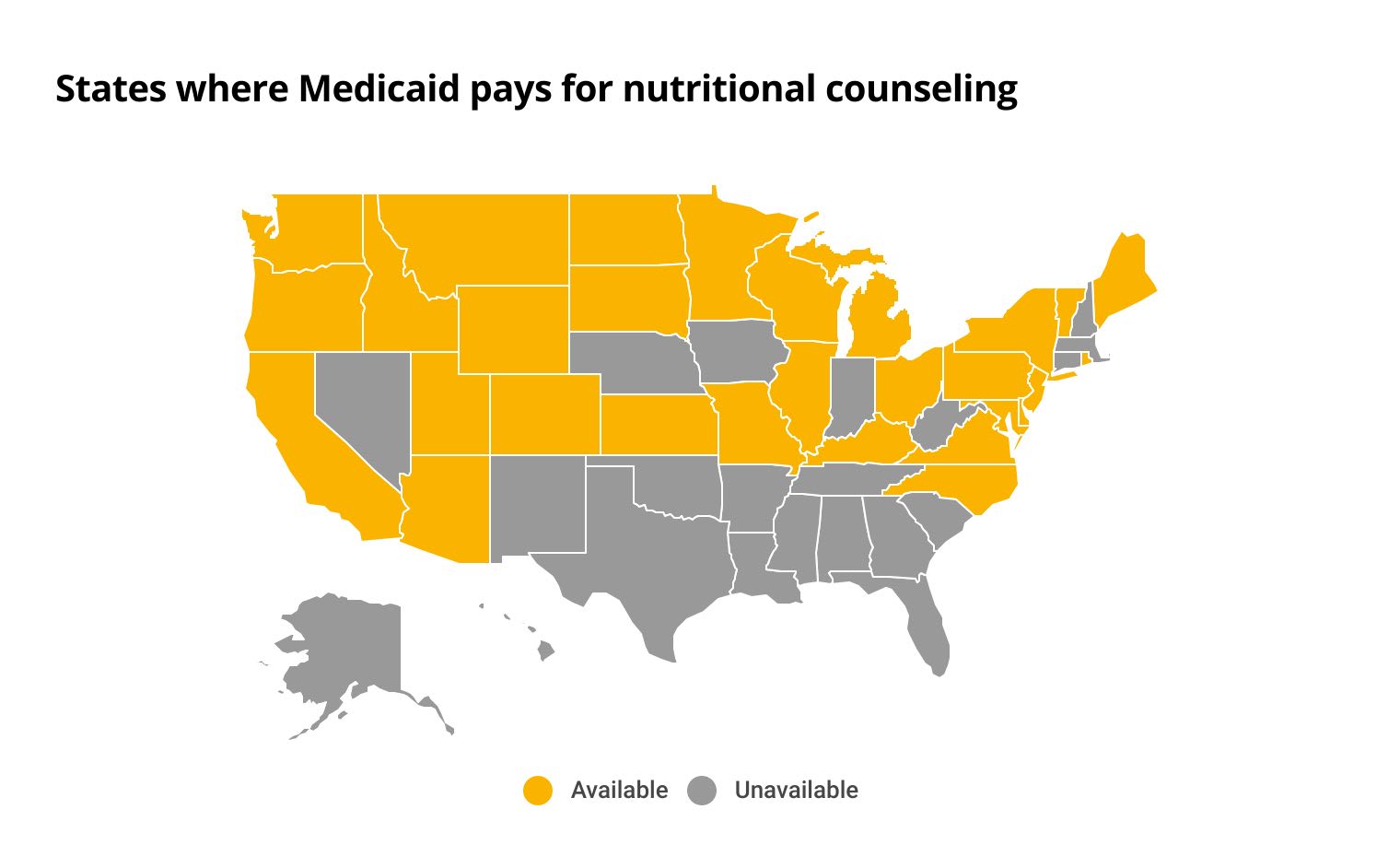Are Nutritionists Covered by Insurance?
Regular health insurance covers registered dietitians and sometimes nutritionists if you have a doctor's referral.
Find Cheap Health Insurance Quotes in Your Area
Typically, your insurance will pay for nutritional counseling if your doctor believes you're at high risk for conditions such as diabetes, obesity and heart disease.
Health plans usually require that you see a registered dietitian instead of a nutritionist. However, this depends on your policy details and where you live.
Are nutritionists covered by insurance?
Insurance plans may cover some services offered by nutritionists. For example, your health plan might pay for a nutritionist if your doctor thinks you're at risk for heart disease.
Insurance plans typically won't pay for nutritionist services just because you want to lose weight. Your health insurance will usually only cover services that your doctor decides are medically necessary.
What’s the difference between a nutritionist and a dietitian?
Health plans are more likely to cover dietitians than nutritionists because dietitians have to pass a licensing test.
To become a dietitian, you need a master's degree, 1,000 hours of supervised practice and a passing score on a qualifying exam. In contrast, there are no national standards nutritionists have to meet.
That means anyone can say they're a nutritionist regardless of their qualifications in many states. Some states have licensing requirements for nutritionists. However, these standards are inconsistent and may be less rigorous than those for registered dietitians.
Are dietitians covered by insurance?
By law, insurance companies must pay for nutritional counseling from a licensed dietitian if you're at a high risk for certain conditions, such as obesity or heart failure. You won't pay anything for this service if you go to a doctor in your plan's network.
The Affordable Care Act (ACA), also known as "Obamacare," requires that regular health insurance plans cover a range of health services meant to head off future problems, called essential coverage, which includes nutritional counseling. However, your exact coverage will depend on your plan details.
Your health plan may also pay for help with your diet, called medical nutrition therapy, from a dietitian if you have diabetes, chronic kidney disease or another qualifying condition. Medical nutrition therapy isn't aimed at keeping you from getting a new or more serious disease. Instead, it helps you safely manage a condition you already have.
Does Medicare pay for a nutritionist or dietitian?
Medicare will pay all of your costs for medical nutrition therapy if you have diabetes, you have kidney failure (end-stage renal disease) or you've had a kidney transplant in the past three years.
You'll need a doctor's referral to qualify for coverage. In addition, you can only use Medicare for dietitians or nutritionists who meet certain standards.
You have Medicare coverage for nutritionists and dietitians regardless of whether you have Original Medicare (Parts A and B) or a Medicare Advantage plan (Part C). That's because Medicare Advantage plans have to offer the same coverage as Original Medicare.
Some Medicare Advantage plans offer extra coverage benefits, such as nutrition counseling or access to health and wellness programs like SilverSneakers, Renew Active and Silver&Fit.
Does Medicaid cover nutritionists or dietitians?
Medicaid programs in 29 states will pay for nutritional counseling if you're at risk of developing diabetes. To get coverage, you must live in a state participating in the National Diabetes Prevention Program (DPP).
Keep in mind that the amount of coverage you get depends on where you live.

Over one-third of Americans have a high risk for Type 2 diabetes, according to the Centers for Disease Control and Prevention (CDC). The National Diabetes Prevention Program (DPP) can cut your risk of developing diabetes in half by helping you make healthy lifestyle changes.
States with National Diabetes Prevention Program (DPP) coverage
- Arizona
- California
- Colorado
- Delaware
- Idaho
- Illinois
- Kansas
- Kentucky
- Maine
- Maryland
- Michigan
- Minnesota
- Missouri
- Montana
- New Jersey
- New York
- North Carolina
- North Dakota
- Ohio
- Oregon
- Pennsylvania
- Rhode Island
- South Dakota
- Utah
- Vermont
- Virginia
- Washington
- Wisconsin
- Wyoming
Medicaid is a type of free health insurance available to people who earn a low income. In most states, you need to earn about $21,000 per year or less as a single person or about $43,000 per year or less as a family of four to qualify.
Frequently asked questions
Is a nutritionist covered by insurance?
Regular health insurance will pay for nutritional counseling from a registered dietitian or nutritionist if your doctor believes you're at risk for developing certain issues, such as heart disease or diabetes. Medicare will pay 100% of your costs for help managing your diet, called medical nutrition therapy, if you're diabetic, you're experiencing kidney failure (end-stage renal disease) or you've had a kidney transplant in the past three years.
Are online nutritionists covered by insurance?
Insurance companies typically pay for online nutritional counseling services under certain conditions. For example, you'll need to see a registered dietitian and have a doctor's referral.
Are nutritionists worth the money?
Nutritionists are worth the money if you're at a high risk of developing a preventable medical problem, such as heart disease or diabetes. Remember, it's cheaper to prevent a disease than to treat one.
Methodology
Dietitian and nutritionist educational and licensing requirements came from Cleveland Clinic and the University of Nevada at Las Vegas. Information related to Medicare coverage of nutritional services was taken from the Cornell Law School website and Medicare.gov.
Medicaid coverage information came from the Centers for Disease Control and Prevention (CDC).
Editorial note: The content of this article is based on the author's opinions and recommendations alone. It has not been previewed, commissioned or otherwise endorsed by any of our network partners.
